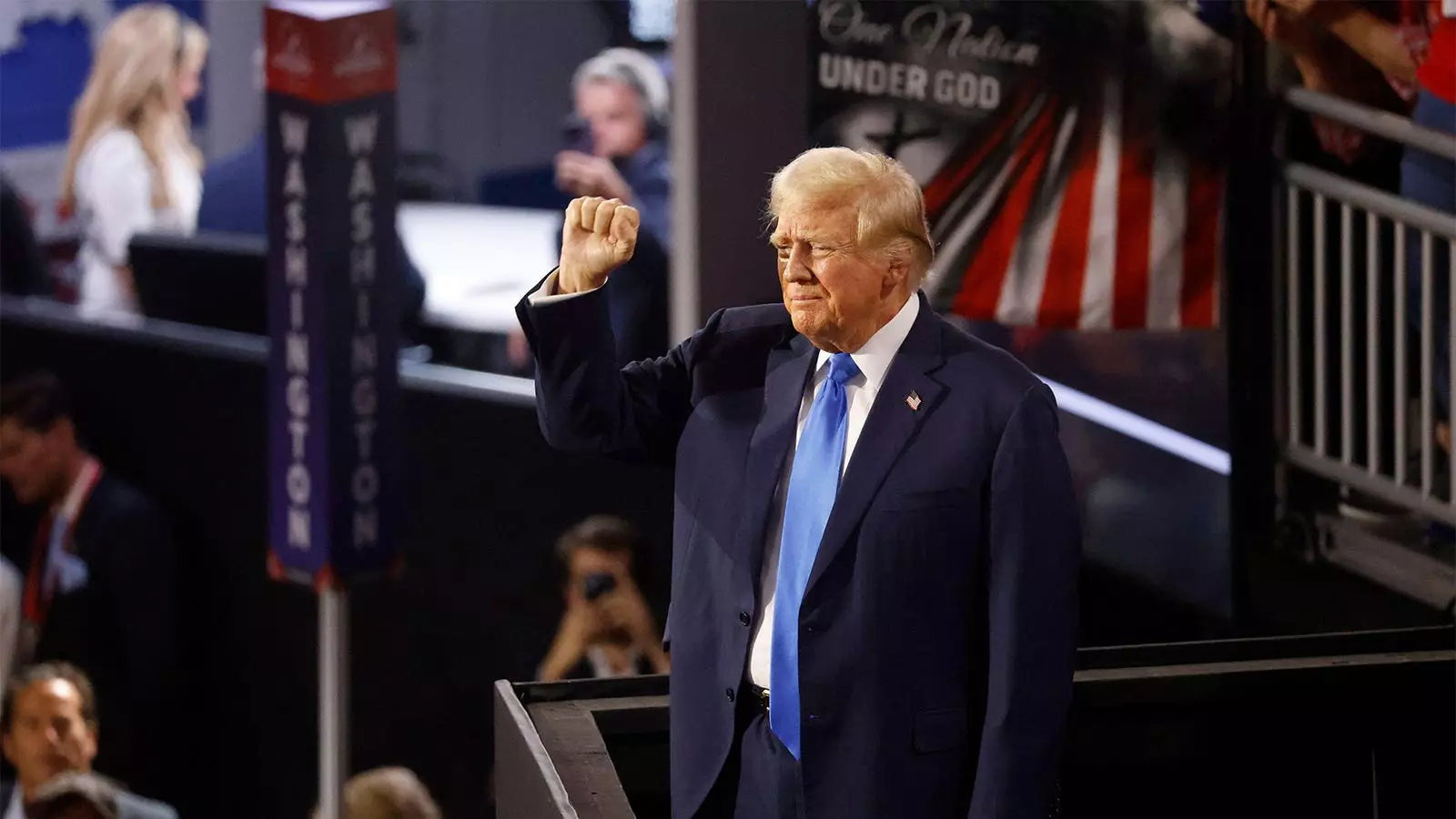The Republican National Convention serves as a platform for party leaders to declare their visions and rally supporters. In a recent address, former President Donald Trump launched an ambitious campaign narrative, asserting his commitment to curing cancer and other critical health issues. His lengthy speech touched upon various pillars of policy, conservative challenges, and personal anecdotes that aimed to resonate with the audience. This article will explore and critically analyze the key assertions made during Trump’s speech, offering a unique perspective on their implications and realities.
One of the most striking promises made by Trump during his speech was the assertion that his administration would soon be on the brink of discovering cures for cancer and Alzheimer’s disease. He stated, “We will unleash the power of American innovation,” suggesting a direct link between leadership and medical breakthroughs. While the ambition to find cures for such devastating illnesses is undoubtedly commendable, one must critically assess the practicalities of this claim. Innovation in medicine is often a complex interplay of scientific endeavors, regulatory frameworks, and ethical considerations, which cannot simply be resolved through political rhetoric.
Additionally, Trump compared his vision with that of President Biden, alleging that the current administration had failed to deliver on its promises regarding cancer research. Here, the former president’s framing evokes a simplistic narrative of accountability while glossing over the multifaceted nature of healthcare policy and the years of research that underpin medical advancements. It is important to question the feasibility of his timelines and the specific mechanisms he proposes to achieve such ambitious goals.
Trump’s strong statement regarding the inclusion of transgender women in female sports drew heated applause. “We will not have men playing in women’s sports,” he confidently claimed, positioning himself as a defender of traditional gender roles amidst rising socio-political conversations regarding gender identity. This stance, echoed by other speakers at the convention, reflects a broader strategy aimed at mobilizing a conservative base concerned about perceived threats to women’s rights and competitive fairness.
However, the real-world implications of such statements are complex. The conversation surrounding gender identity in sports is not simply a matter of defending traditionalism; it dives into intricate discussions about equality, inclusivity, and the evolving understanding of gender. The potential exclusion of transgender individuals from sports carries significant ramifications, raising ethical questions about equity and rights in the name of preserving competitive balance.
Trump prominently boasted about the “Right to Try” law he enacted, which allows terminally ill patients access to experimental drugs previously shunned by insurance companies. While he painted a picture of success — claiming to save thousands of lives — the reality tells a different story. Critics argue that the law does not guarantee access to these drugs and often relies on ambiguous regulatory standards and the willingness of manufacturers to comply.
Moreover, the claim that only four drugs were utilized under this law last year raises serious doubts about its efficacy. Prior to the law’s passage, a high percentage of applicants under an FDA program known as “expanded access” were granted permission for use. Thus, the assertion that major breakthroughs were achieved through “Right to Try” might be more a matter of political rhetoric than a reflection of significant policy success.
Trump didn’t shy away from critiques of Biden, particularly concerning the current president’s physical and mental fitness. Such critiques, while aimed at swaying public opinion, often drift into the territory of ageism and speculative narratives about a leader’s capabilities rather than focusing on substantive policy differences. The frequent references to Biden’s schedule and cognition may be effective in stirring doubt among voters, but they also illustrate a tendency to focus on personal attributes rather than critical political discourse.
Prominent figures, including former officials, echoed this sentiment in their own remarks during the convention, further driving a wedge between perceptions of leadership capability attached to age. However, it is vital to ground these discussions in facts and achievements rather than singular narratives about stamina or public appearances.
The heart-wrenching accounts shared about the opioid crisis illustrated Trump’s outreach to constituents affected by this epidemic. The emotional narratives were compelling, yet they also invited scrutiny regarding the effectiveness of governmental responses to addiction. While personal stories can raise awareness, they challenge society to engage deeply with the structural issues at the root of the crisis.
Trump’s commitment during his earlier presidency to combat this crisis was highlighted, yet a comprehensive analysis must reflect on what tangible measures were put in place and whether they met their intended outcomes. The rhetoric surrounding the opioid crisis continues to evoke strong emotions; however, addressing it requires more than well-meaning anecdotes — it necessitates a rigorous examination of policy and accountability.
Trump’s address at the Republican National Convention was laden with grand promises and emotive appeals. However, beneath the surface, critical analysis exposes the challenges of translating such ambitions into practical realities. The marriage between political platitudes and citizen well-being remains fraught with complexity, necessitating vigilant scrutiny and active engagement from voters and policymakers alike.


Leave a Reply